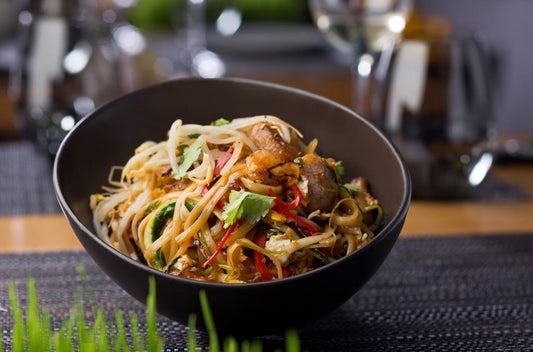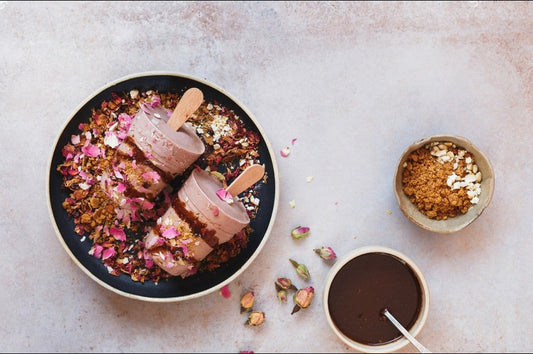
The Perfect Marinade: Using Puress Mustard Oil for Flavorful Meats
Marinating is an age-old culinary technique that has been used across cultures to enhance the flavor, texture, and tenderness of meats. While there are countless ingredients that can be used in a marinade, one that often gets overlooked in Western cuisine but is revered in many parts of Asia, particularly in Indian cooking, is mustard oil. Puress Mustard Oil, with its distinctive pungent aroma and complex flavor profile, can elevate your marinades to new heights, resulting in meat dishes that are bursting with flavor and perfectly tenderized. Let's dive into the world of mustard oil marinades and discover how this powerful ingredient can transform your cooking.
Understanding Mustard Oil
Before we explore its use in marinades, it's important to understand what makes mustard oil unique. Extracted from mustard seeds, this oil has a sharp, slightly spicy flavor and a pungent aroma that sets it apart from other cooking oils. Puress Mustard Oil is known for its high quality and purity, ensuring that you get the full benefit of this flavorful oil in your cooking.
The oil contains allyl isothiocyanate, the compound responsible for its characteristic heat and pungency. This compound not only adds flavor but also has antimicrobial properties, which historically made mustard oil a popular choice for food preservation.
Benefits of Using Mustard Oil in Marinades
1. Flavor Enhancement: The strong, distinctive taste of mustard oil imparts a deep, complex flavor to meats. It adds a subtle heat and a slightly nutty undertone that complements a wide range of spices and herbs.
2. Tenderizing Effect: Mustard oil contains erucic acid, which helps break down tough muscle fibers in meat, resulting in a more tender final product.
3. Improved Texture: The oil helps to keep the meat moist during cooking, preventing it from drying out and ensuring a juicy result.
4. Antioxidant Properties: Mustard oil is rich in antioxidants, which can help preserve the freshness of the meat and add nutritional value to your dish.
5. Antimicrobial Action: The natural antimicrobial properties of mustard oil can help inhibit the growth of harmful bacteria on raw meat.
Creating the Perfect Mustard Oil Marinade
A great marinade balances several key elements: oil, acid, salt, and aromatics. Here's how to create a basic mustard oil marinade that you can customize to your taste:
Base Marinade Recipe:
- 1/4 cup Puress Mustard Oil
- 2 tablespoons acid (lemon juice, vinegar, or yogurt)
- 1 teaspoon salt
- 2-3 cloves of garlic, minced
- 1 tablespoon of your favorite herbs or spices
To use this marinade, simply mix all ingredients together and coat your meat thoroughly. Let it marinate in the refrigerator for at least 2 hours, or overnight for tougher cuts of meat.
Customizing Your Marinade
The beauty of this base recipe is its versatility. You can adapt it to suit different cuisines and flavor profiles:
1. Indian-Inspired: Add garam masala, turmeric, and finely grated ginger for a curry-like flavor.
2. Mediterranean: Include oregano, rosemary, and a splash of red wine vinegar.
3. Middle Eastern: Mix in cumin, coriander, and a touch of cinnamon.
4. East Asian: Incorporate soy sauce, ginger, and a bit of brown sugar.
5. Barbecue Style: Add paprika, brown sugar, and a dash of liquid smoke.
Tips for Marinating with Mustard Oil
To get the best results when marinating with Puress Mustard Oil, keep these tips in mind:
1. Temperature Matters: Always marinate meat in the refrigerator to prevent bacterial growth. Take the meat out of the fridge about 30 minutes before cooking to allow it to come to room temperature.
2. Time It Right: While tougher cuts of meat benefit from longer marinating times (up to 24 hours), more delicate meats like fish or chicken breast should only be marinated for 2-4 hours to prevent the acid in the marinade from "cooking" the meat.
3. Use Non-Reactive Containers: Marinate your meat in glass, ceramic, or food-grade plastic containers. Avoid metal containers as they can react with the acid in the marinade.
4. Don't Reuse Marinades: Once a marinade has been in contact with raw meat, it should be discarded or boiled before using as a sauce to eliminate any harmful bacteria.
5. Pat Dry Before Cooking: Remove excess marinade before cooking to ensure proper browning, especially when grilling or pan-searing.
6. Experiment with Ratios: Adjust the ratio of mustard oil to other ingredients based on your preference for its flavor intensity.
Best Meats for Mustard Oil Marinades
While mustard oil can be used to marinate virtually any type of meat, some particularly benefit from its bold flavor:
1. Lamb: The strong flavor of mustard oil stands up well to the richness of lamb.
2. Chicken: Mustard oil can transform bland chicken into a flavorful delight.
3. Fish: Particularly oily fish like salmon or mackerel pair well with mustard oil marinades.
4. Pork: The tenderizing effect of mustard oil works wonders on pork chops or tenderloin.
5. Goat: Popular in Indian cuisine, goat meat benefits from both the flavor and tenderizing properties of mustard oil.
Health Considerations
While mustard oil is widely used in many parts of the world, it's worth noting that some countries have restrictions on its use as a cooking oil due to its erucic acid content. However, when used in moderation as part of a marinade, these concerns are generally mitigated. As with any ingredient, moderation is key.
Cooking Methods for Marinated Meats
Meats marinated in mustard oil can be cooked using various methods:
1. Grilling: The high heat of the grill caramelizes the sugars in the marinade, creating a delicious crust.
2. Roasting: Ideal for larger cuts of meat, allowing the flavors to penetrate deeply.
3. Pan-Searing: Great for achieving a crispy exterior while keeping the inside tender.
4. Slow Cooking: Perfect for tougher cuts of meat, allowing them to become tender and infused with flavor.
5. Tandoor-Style: If you have access to a tandoor oven or can recreate similar conditions, this method is excellent for mustard oil marinated meats.
Incorporating Puress Mustard Oil into your marinades opens up a world of flavor possibilities. Its unique taste profile, tenderizing properties, and potential health benefits make it a valuable addition to any cook's repertoire. Whether you're grilling kebabs for a summer barbecue, roasting a chicken for a family dinner, or preparing a slow-cooked lamb dish, a mustard oil marinade can take your meat from ordinary to extraordinary.
As with any new ingredient, the key is to experiment. Start with small amounts of mustard oil in your marinades and gradually increase as you become accustomed to its flavor. You may find that it becomes your secret ingredient for creating memorably delicious meat dishes.
Remember, the art of marinating is about balancing flavors and allowing time for those flavors to penetrate the meat. With Puress Mustard Oil as your ally, you're well on your way to mastering this culinary technique and delighting your taste buds with deeply flavored, perfectly tender meats. Happy cooking!
Continue reading
View all-

The Twin Temptation: Bakers Frappe Powder for Your Cafe-at-Home Moments
Are you tired of spending a fortune at coffee shops to get that perfect frappe? What if you could recreate that creamy, smooth, and delicious experience right in your own...
The Twin Temptation: Bakers Frappe Powder for Your Cafe-at-Home Moments
Are you tired of spending a fortune at coffee shops to get that perfect frappe? What if you could recreate that creamy, smooth, and delicious experience right in your own...
-

Spice Up Your Plate: The Golden Touch of Puress Cold Pressed Mustard Oil!
Puress Cold Pressed Mustard Oil can transform a dish with its unique flavor profile. Try it now!
Spice Up Your Plate: The Golden Touch of Puress Cold Pressed Mustard Oil!
Puress Cold Pressed Mustard Oil can transform a dish with its unique flavor profile. Try it now!
-






